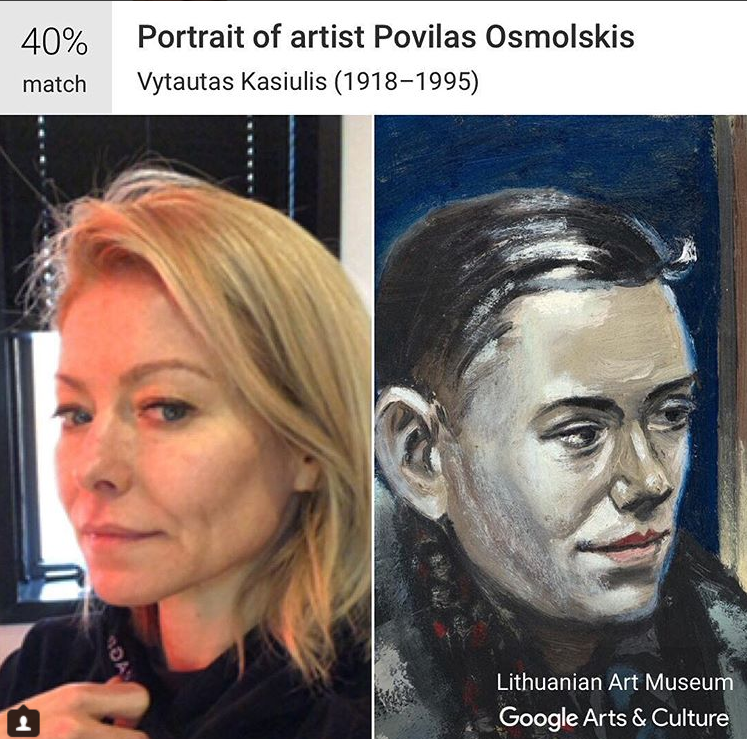Google’s Arts and Culture app has shot to the top of the charts after it started offering a service to match your face with a painting in a museum.

The app allows for virtual museum tours, and offers articles on museums near you and around the world.
But the thing that has the internet buzzing is the self-portrait option. (Sorry, Canadians, it’s only available in the U.S. for now.)
The so-called Museum Selfie allows a user to upload a picture of themselves, and the algorithm matches them to a famous (or unknown) picture.
Many celebrities have joined in and posted their likenesses.
Sam Trosow, privacy expert at Western University’s faculty of law warns that offering up your info willy-nilly for fun, frivolous apps like these isn’t a good idea.
He says that you should always read the fine print – and be wary of vague terms.
“We use the information we collect from all of our services to provide, maintain, protect and improve them, to develop new ones, and to protect Google and our users,” Google’s privacy policy reads.
But he says that gives Google a very broad licence to do with your information or content as they will.
“This type of personal content is indeed extremely valuable from a potential monetization and/or marketing perspective,” he told Global News. “It could also assist the company in R&D for facial recognition products.”
Google clarified to the Washington Post that the selfies aren’t being stored or used to train machine learning programs.
In fact, the company has said the app will only store the picture for the time it needs to match the picture, but other experts warn that the normalization of facial recognition can lead to trouble.
“The rise in the use of facial recognition by Google and other companies normalizes a privacy-invasive technology that lacks meaningful protections for users,” Jeramie Scott, national security counsel at the U.S.-based Electronic Privacy Information Center, told the Post.
WATCH: China’s facial recognition advances; becomes largest video surveillance network

A column from U.K. newspaper the Guardian called the app “fundamentally frightening.”
“Google’s latest experiment, you see, says less about art than it does the burgeoning science of facial recognition technology,” Arwa Mahdawi wrote.
But everywhere you look, facial recognition is on the rise.
Along with Google, Facebook is planning on using facial recognition to notify you if your face pops up in your friends’ photos – even if they haven’t tagged you.
In Canada, airports are using the technology at border crossings. In China, bathrooms are using it to prevent the theft of toilet paper and jay-walking.
In the U.S., the FBI is using it to solve crimes.
The laws in Canada are different than the U.S. – Trosow explains that we have a “much more stringent” law that states companies aren’t allowed to use your information unless they get your consent and they tell what they’ll be using your information for.
The Museum selfie feature also isn’t available in Texas or Illinois in the U.S. – the Washington Post reports that both states have laws that forbid facial recognition of users without their consent.





Comments